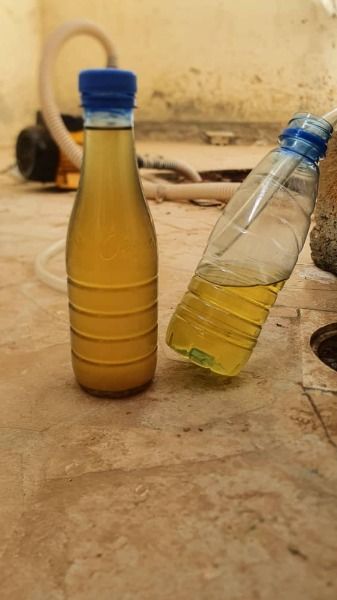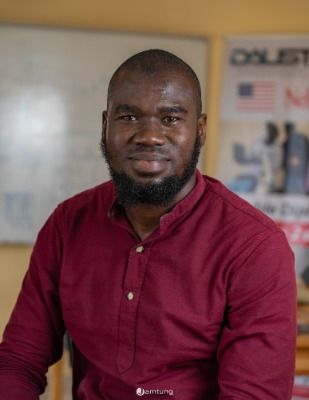Locally Managed Circular Economy based on waste management: Hydrocarbon fuel production from plastic waste
plastic waste generation is causing damage to terrestrial and aquatic ecosystems. We propose deploying an appropriate technology based on a sustainable solution to convert plastic waste into a locally usable hydrocarbon fuel.

A grand challenge facing developing countries is achieving economic growth in a socially and environmentally responsible manner. In the last decade, mass produced pre-packaged goods, often packed in plastic, have spread widely throughout both urban and rural populations of developing countries. Despite the benefits plastic can bring, dealing with waste plastic accumulation due to consumption of such goods is a challenge since proper disposal systems are often unavailable. This accumulation of waste plastic is causing an ecological disaster. Lack of infrastructure to collect and manage waste leaves developing countries vulnerable to being overwhelmed by plastic.
This project is based on converting waste plastic into a liquid fuel referred to as Petroleum Derived Fuel Oil (PDFO) suitable for use in a diesel engine or cook stove. We will apply the principles of appropriate technology which is simple, low-cost technology designed to meet the specific needs of a community, to develop a process that is simple, cost effective and efficient. Our process, called the trash to tank, or 3T process is simple, low cost and can be built and operated by individuals with little or no formal technical education. The waste plastic is converted to fuel oil by thermal decomposition. Using this process, waste plastic becomes a valuable raw material that can be converted into a value-added product. The technology is proven that is environmentally friendly, socially beneficial and economically viable. The aim is to further disseminate the technology through a pilot study in the Republic of Senegal.
In a broader sense, the methodology for this work is based on the principles of the locally managed, decentralized circular economy (LMDCE). When plastic waste does not have a value, it is simply discarded after use. If trash collection infrastructure does not exist, waste will most likely end up in the streets, waterways, or in open dumps. The plastic must be given a value so that it isn’t discarded. In developing or resource-limited regions, supply chain constraints mean that local solutions are favored. For the case of waste plastic, this means decentralized collection and decentralized utilization. This is fundamentally what the LMDCE for waste plastic is all about. In the LMDCE concept, imported manufactured goods enter the cycle as the initial feed source. The plastic is used locally, collected post use, and then used as raw material locally to produce goods that can then be sold back to the community. The only output from the perspective of municipal solid waste is any material that gets discarded because it is either not collected, or cannot be used. The key here is that all aspects of the project are managed locally including collection and production. This limits the scope of manufacturing, but has a higher likelihood of success when implemented. The real benefit is that this approach does not require sophisticated infrastructure and provides a local incentive for waste collection. Community stakeholders will be consulted from the beginning of project planning till the end of project implementation. Monitoring and Evaluation (M&E) will be used to measure the impact of the project and track how closely the project goals are to success.
The main outcome of this project will be to demonstrate a process that provides an economic value for waste plastic, and keeps it out of the ecosystem. The detrimental effects of waste plastic in the ecosystem have been well documented. The Ellen MacArthur Foundation estimates that unless the flow of plastic into the ocean is stopped, by 2050 the mass of plastic in the ocean will outweigh the mass of fish. Plastic to fuel is, so far, the only technology that removes plastic from the ecosystem, and leads to a net reduction in greenhouse gas emissions, on a life cycle basis. Other recycling methods, while important, simply delay the introduction of plastic waste into the ecosystem. Additionally, efforts to clean trash from the ocean can only make headway if the continuing stream of plastic is stopped. The goal of this dissemination will be to further educate the public as to the environmental harm caused by waste plastic and highlight methods, include waste to energy, to combat this global ecosystem threat.
This collaborative project between the Dakar American University of Science and Technology (DAUST), Energy Research Consulting (EngrRC), and Engineers for Sustainable Energy Solutions (ESES) will focus on the Republic of Senegal, but the outcomes have implications globally since eliminating waste plastic provides tremendous benefits to global ecosystems.
The project will comprise 4 phases.
- 1st phase: Manufacturing by DAUST of 10 3T processors and Community needs assessment and stakeholder engagement
- 2nd phase: Distribution of the processors and trainings to the Civil Societies Organizations and Small companies
- 3rd phase: Follow-up field work, collect data and assessment
- 4th phase: Technical adaptation of the processors and scale-up
If properly operated, these processors will lead to the production of sulfur free fuel that will displace an equal amount of petroleum diesel fuel from the supply chain. The monitoring system will help to quantify the impact of the processors. That information will be crucial to improve the processors and make them more compatible to the social economic realities of Senegal. Then the scale up will be done by implementing of more processors around Senegal and Africa. The expansion of the project will lead to significant ecosystem benefits of which the evidence can be easily quantified by the amount of plastic diverted from the ecosystem.
Meet the solution owner
